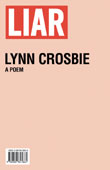
...taken by Martina Brandstetter (from news.bbc.co.uk)
 There was an incident in my classroom last week in which a student held up a ball of plasticine and announced to his table group, “Who will pay me to eat this?”
There was an incident in my classroom last week in which a student held up a ball of plasticine and announced to his table group, “Who will pay me to eat this?” A colleague pointed out that this could be a result of those shows like Fear Factor where people perform unsavoury feats in order to win large amounts of money at the end. Fear Factor came at the beginning of the reality show craze and sparked several editorials about the “dumbing down” of television.
A colleague pointed out that this could be a result of those shows like Fear Factor where people perform unsavoury feats in order to win large amounts of money at the end. Fear Factor came at the beginning of the reality show craze and sparked several editorials about the “dumbing down” of television.  What happened to showing off your knowledge during Jeopardy? What about figuring out a phrase with only a few letters, a la Wheel of Fortune? Has the current generation of children been dumbed down so much that earning money by doing disgusting things is now perfectly normal?
What happened to showing off your knowledge during Jeopardy? What about figuring out a phrase with only a few letters, a la Wheel of Fortune? Has the current generation of children been dumbed down so much that earning money by doing disgusting things is now perfectly normal? 
 Lyla looks up at the clock which hangs over the large stone fireplace, thick wooden beams creating a mantelpiece across the front, and catches herself. The clock says quarter to nine, as it has for the past 3 years she has been coming to this pub. She pulls back her sleeve to check her watch: twenty minutes past five, he is late.
Lyla looks up at the clock which hangs over the large stone fireplace, thick wooden beams creating a mantelpiece across the front, and catches herself. The clock says quarter to nine, as it has for the past 3 years she has been coming to this pub. She pulls back her sleeve to check her watch: twenty minutes past five, he is late. "When passenger of foot heave in sight, tootle the horn. Trumpet him melodiously at first, but if he still obstacles your passage, then tootle him with vigour."
"When passenger of foot heave in sight, tootle the horn. Trumpet him melodiously at first, but if he still obstacles your passage, then tootle him with vigour."
 I come from a family of teachers and have myself entered the profession, so I am no stranger to frequent and lengthy vacations. And I consistently get snide comments about my schedule being 9 until 3 with summers off, to which I smile and answer, "yeah, it's a sweet gig". But I truly feel holiday time is an essential part of human existence. And not just a teacher's existence.
I come from a family of teachers and have myself entered the profession, so I am no stranger to frequent and lengthy vacations. And I consistently get snide comments about my schedule being 9 until 3 with summers off, to which I smile and answer, "yeah, it's a sweet gig". But I truly feel holiday time is an essential part of human existence. And not just a teacher's existence. This post is not meant to be defensive, detailing my need for these holidays because "I work so hard and I'm so stressed out." I can think of many other people who work harder and longer than me and have fewer holidays. But I think those people have got it all wrong. Humans need downtime - those hours after work, days on the weekend, and weeks in a holiday - to recharge their emotional batteries, to restore their health (both mental and physical) and to take time for themselves.
This post is not meant to be defensive, detailing my need for these holidays because "I work so hard and I'm so stressed out." I can think of many other people who work harder and longer than me and have fewer holidays. But I think those people have got it all wrong. Humans need downtime - those hours after work, days on the weekend, and weeks in a holiday - to recharge their emotional batteries, to restore their health (both mental and physical) and to take time for themselves. And I believe that just like with their bread, wine and cheese, the French have got it right. They truly see the value of downtime (and anyone who's spent several hours at a table outside a southern French cafe, would agree).
And I believe that just like with their bread, wine and cheese, the French have got it right. They truly see the value of downtime (and anyone who's spent several hours at a table outside a southern French cafe, would agree). after 15 years in the same job, are entitled to "Long Service Leave" during which they get 13 weeks of PAID vacation. So why do Canadians (as I believe we are more like our American neighbours in this aspect) and Americans place a higher value on money than on vacation?
after 15 years in the same job, are entitled to "Long Service Leave" during which they get 13 weeks of PAID vacation. So why do Canadians (as I believe we are more like our American neighbours in this aspect) and Americans place a higher value on money than on vacation? I first became employed at a cemetery in the east end of Toronto doing landscape work in the summers during university. Myself and a small army of my peers spent eight hours a day, from May to August, cutting grass, planting flowers, trimming hedges and weeding beds. It was monotonous, tiring work that was made bearable by the intense camaraderie between the student workers as well as the staff’s outlandish sense of humour.
I first became employed at a cemetery in the east end of Toronto doing landscape work in the summers during university. Myself and a small army of my peers spent eight hours a day, from May to August, cutting grass, planting flowers, trimming hedges and weeding beds. It was monotonous, tiring work that was made bearable by the intense camaraderie between the student workers as well as the staff’s outlandish sense of humour. My first few funerals went smoothly – we dug the graves, stood in the background during the burial, and filled in the grave once the mourners had dispersed. I ran into my first spot of trouble one mild January day when we had to hand dig a grave in a rather crowded section of the cemetery. The ground had thawed and was therefore very wet, so when we started to dig, the grave filled with water almost immediately and soon the sides began caving in. The bottom of the grave was a pit of thick, muddy water. Thanking our lucky stars we had started early, we set the water pump in motion, scooped out as much mud as we could and covered the soggy bottom of the hole with leaves to disguise the muck.
My first few funerals went smoothly – we dug the graves, stood in the background during the burial, and filled in the grave once the mourners had dispersed. I ran into my first spot of trouble one mild January day when we had to hand dig a grave in a rather crowded section of the cemetery. The ground had thawed and was therefore very wet, so when we started to dig, the grave filled with water almost immediately and soon the sides began caving in. The bottom of the grave was a pit of thick, muddy water. Thanking our lucky stars we had started early, we set the water pump in motion, scooped out as much mud as we could and covered the soggy bottom of the hole with leaves to disguise the muck.
 I regularly read Lynn Crosbie’s column in Saturday’s Globe and Mail, often accompanied by a dictionary to decipher the assorted words she uses that do not reside within my personal lexicon. Several weeks ago, she published an excerpt from her poem “Liar,”* the full-length version spanning 150 pages, about a break-up with a boyfriend.
I regularly read Lynn Crosbie’s column in Saturday’s Globe and Mail, often accompanied by a dictionary to decipher the assorted words she uses that do not reside within my personal lexicon. Several weeks ago, she published an excerpt from her poem “Liar,”* the full-length version spanning 150 pages, about a break-up with a boyfriend. However, the excerpts that I read from “Liar” show an even more rancorous individual, deeply hurt and seething from the humiliation she experienced at her partner’s betrayal. (It is a fallacy to assume that all writing is based on personal experience, however Crosbie has revealed in interviews that “Liar” is based on her own experience of an infidelity and subsequent break-up.) From Crosbie’s choler comes prolific and magnificent lines of poetry. Her images are striking and her words are carefully chosen.
However, the excerpts that I read from “Liar” show an even more rancorous individual, deeply hurt and seething from the humiliation she experienced at her partner’s betrayal. (It is a fallacy to assume that all writing is based on personal experience, however Crosbie has revealed in interviews that “Liar” is based on her own experience of an infidelity and subsequent break-up.) From Crosbie’s choler comes prolific and magnificent lines of poetry. Her images are striking and her words are carefully chosen.